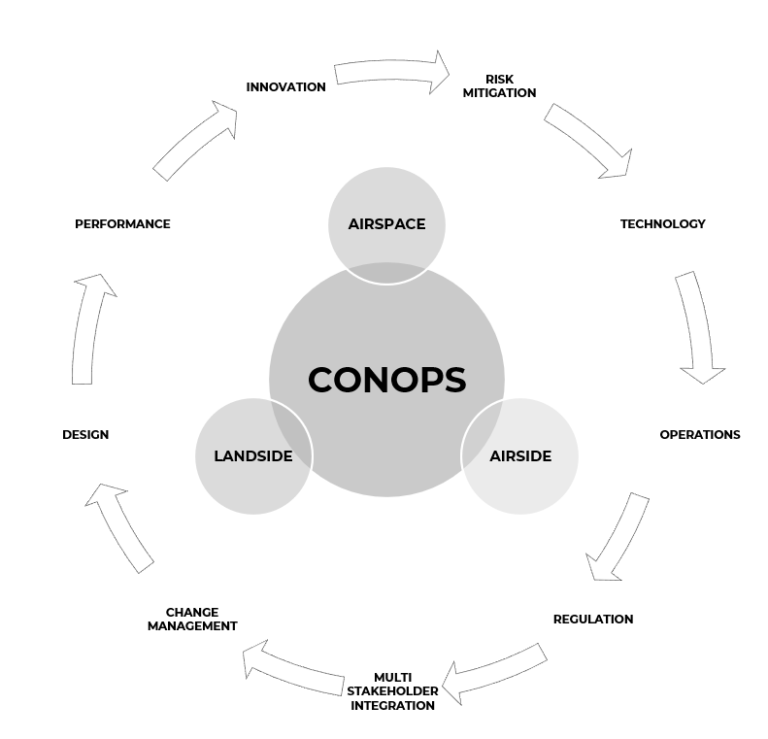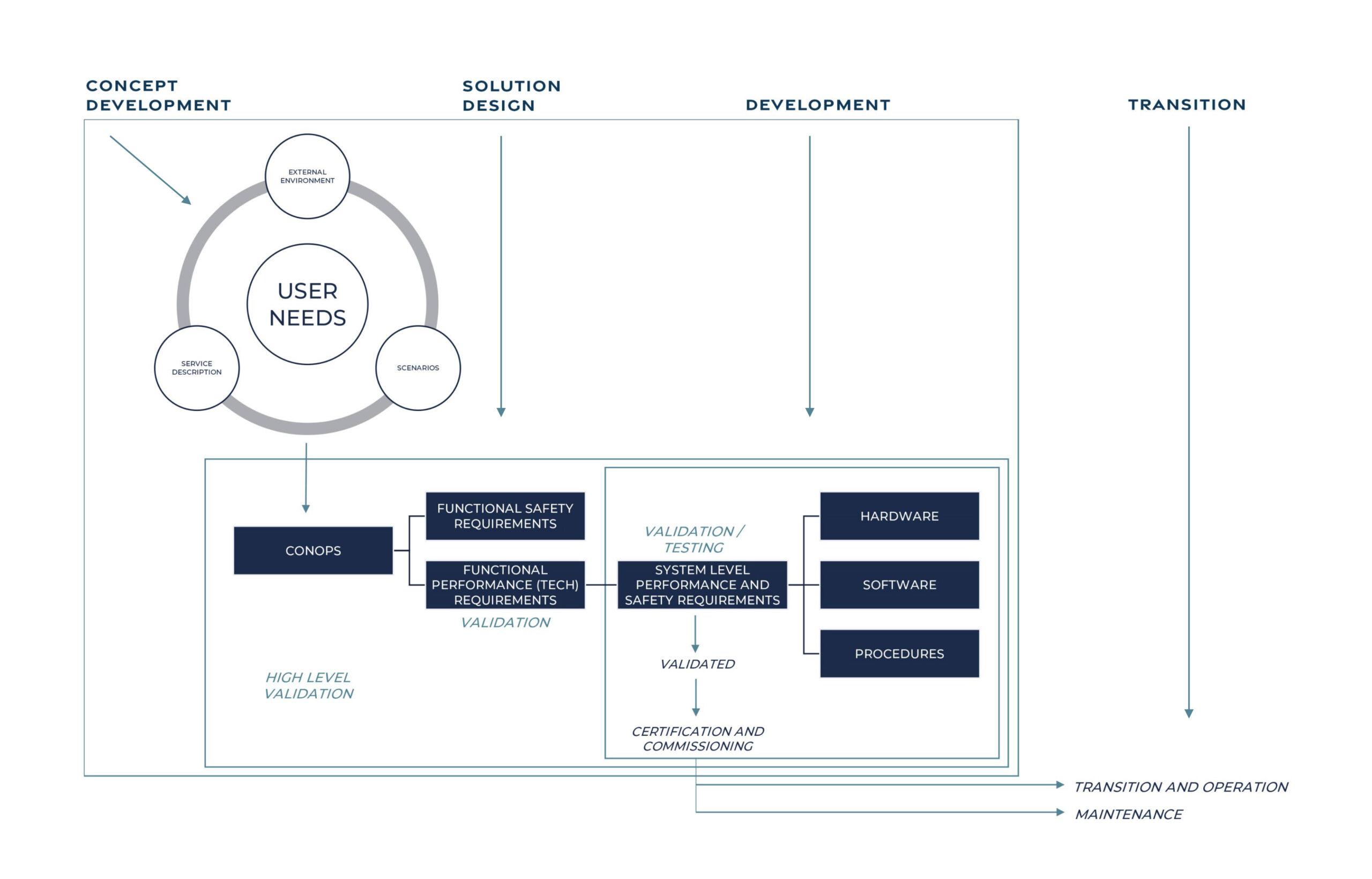CONOPS — A Total Vision
CONOPS — An Integrated Process
Concept Validation
Air Traffic Management Concept Systems & Procedures Innovation
A Concept of Operations (CONOPS) describes the operational strategy required to meet a set of performance objectives. The CONOPS communicates the overall vision for the operational system to all stakeholders and provides the steering for future systems and procedures development.
AVISU has a proven capability to marry the need for a transparent and stable development process with the open creative environment needed for true innovation to occur.

CONOPS — A Total Vision
To ensure an end to end concept, a total environment view must be taken. A concept developed for part of the business will be a flawed approach as the silo focus will inevitably miss internal or external stakeholders, and interface issues will not only reduce efficiency of the solution but put a successful outcome at risk. Our AVISIM simulation and analytics tool has been designed to target Concept verification requirements with an efficient and accurate approach
AVISU has a trusted and lengthy experience in all Air Traffic Management domains necessary for a holistic view towards a common vision.
CONOPS — An Integrated Process
Concept development is a set of activities that are carried out early in the system lifecycle to collect and prioritise the operational needs and to develop alternative concepts to meet the requirements; before selecting one as the basis for subsequent system or capability development and implementation.
This process covers:
Holistic View of the Environment
The CONOPS should include the full range of factors that are needed to support the operations (i.e. foreseen operational paradigms, organisational structure, training, leadership, personnel, facilities, and resources). A CONOPS should also contain a high-level user’s view of the system that highlights the top-level functional threads within the system. Crucially, a CONOPS should define critical, top-level, stakeholder requirements or objectives and the operational and user’s needs stated either qualitatively or quantitatively where possible.
Operational Requirements
Description of the operating environment, both present and future throughout the forecast lifecycle — detailing both internal and external factors. User-oriented description of the proposed new/modified system in response to current and future needs. Details operational scenarios for previously identified modes of operation, present and future. Needs are categorised as essential (not prioritised), and desirable and/or optional needs (each prioritised).
High Level Conceptual Definition
An Initial Solution design is commenced based on the developing CONOPS. This work package ensures that the concept is in line with targeted performance objectives and meet initial safety and technical feasibility analysis. This work package is expanded in Phase 3 to a more detailed breakdown of each of these critical delivery areas.
Operational Benefits Validation
Provide Real or Fast Time Simulations to highlight the operational benefits.
Concept Design, Safety and Performance
Oversees the integration of the solution design safety analysis with the customer safety experts and SMS. Performance characteristics ensures the solution design will meet the target performance objectives of the project in terms of efficiency, environment, and business continuity etc.
System Development
Solution design is a key activity that transforms the CONOPS and the initial design into a validated and detailed functional design that can be met by the final system and procedures.
Concept Validation
This process ensures a structured approach to the complete development of a system from an initial need, through operations to retirement.
The application of defining systems conceptually, transform user needs into system requirements and develop and assess architectures is necessary to provide an assurance of the international standards and technology used in defining the system building blocks.
ISO/IEC/IEEE 15288 is an international system engineering standard covering processes and lifecycle stages.
The left side of the V represents concept development and the decomposition of requirements into function and physical entities that can be architected, designed and developed.
The right side of the V represents integration and their ultimate transition into the field where they are operated and maintained. Note that design and development continue through the lifecycle of the system.

There are various methodologies established to validate operational concepts and their technical enablers (such as MAEVA and E-OCVM). Taking an immature concept into an iterative validation process with ever increasing complexity and integration of technical, human, procedural and environmental aspects is a difficult and time-consuming task.
Understanding and being aware of existing validation programs, projects and tasks around the globe is vital to ensure requirements that feed certification material are acceptable to the airport industry, while at the same time minimising costs and maximising the applicability of the concepts to as many implementers as possible.
AVISU has managed and been involved in the validation of both local as well as internationally focused concepts. AVISU can provide a sound understanding of acceptable validation techniques to combine both a project management role as well as subject matter experts into validation processes. This brings a strong element of realism into the development and application of such techniques and fast-time and real-time simulations, collision risk and other aircraft interaction or network-based modelling.
